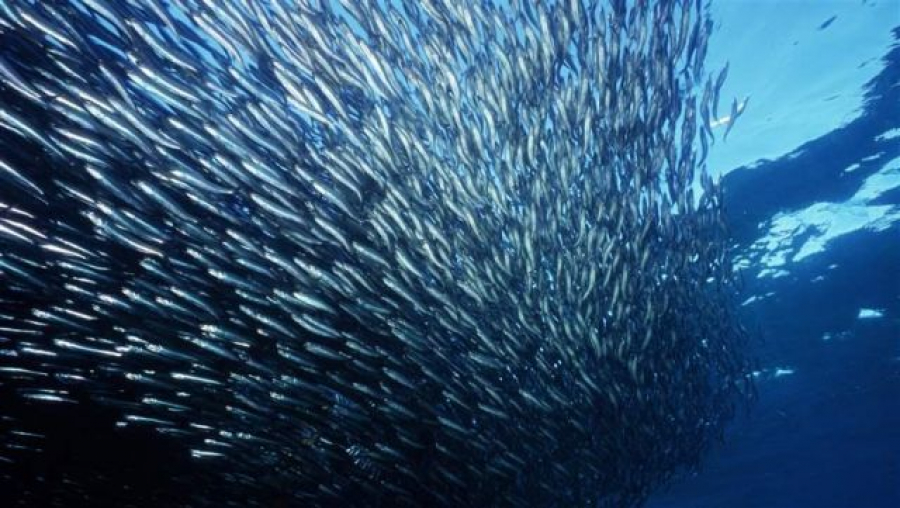When anchovies mate, they stir the ocean and spur a healthy ecosystem, study finds
Researchers found that the frantic movement of anchovies during their spawning season has a significant impact on ocean turbulence.
It's not about the size of the fish -- it's about the motion in the ocean.
A new study led by Southampton University researchers has found that when some species of fish get frisky, their activity causes the Earth's waters to move -- as much as a major storm does.
Researchers analyzed ocean turbulence over 14 days in Ría de Pontevedra, a coastal inlet in northeastern Spain. They found that turbulence increased 10- to 100-fold when anchovies gather to mate during the spawning season -- and that the ocean mixing caused by the fish's lovemaking is as efficient as that caused by geophysical turbulence like storms, winds, tides and other natural forces.
Even though the weather was calm during the period of the study, the anchovies' breeding made the water as turbulent as if a large storm had occurred. Like many fish, anchovies reproduce through spawning, with the females releasing eggs and the males releasing sperm to fertilize them.
Researchers collected samples with small fishing nets, which found recently spawned European anchovy eggs -- a sure sign that the fish were spawning nearby.
The study, published in the journal Nature Geoscience on April 7, found that fish's ability to sway the oceans is strongest near the coast, where the ocean layers are more shallow.
The ocean is made up of multiple layers, with lighter, warmer waters at the top and denser, cooler waters at the bottom. Mixing the layers helps circulate nutrients and oxygen, keeping the ecosystem running.
The findings contrast with previous research that has found that "biomixing," like that caused by the fish, has a minimal impact, especially in open waters.
"We believe that biological mixing was intense in our observations because the bay is highly stratified," Dr. Bieito Fernández Castro, the research fellow at the University of Southampton who led the study, said in a news release. "The temperature and other properties vary significantly at different depths."
The fish's "frantic behavior" during mating, researchers found, swirled together the stratified ocean layers in the bay.
This mixing, whether caused by natural forces or marine life, helps circulate oxygen and nutrients and redistribute the temperature of the water, supporting the healthy functioning of the ocean ecosystem.
(CNN)














